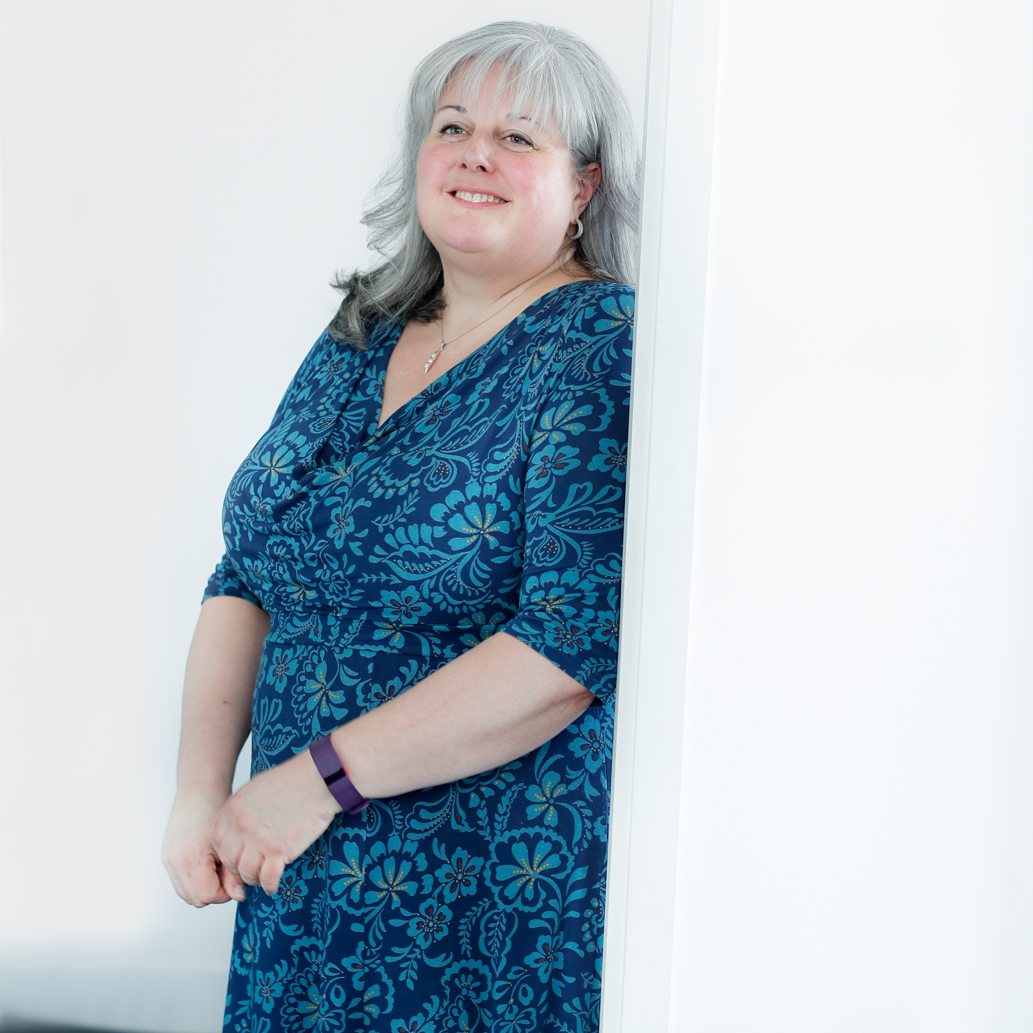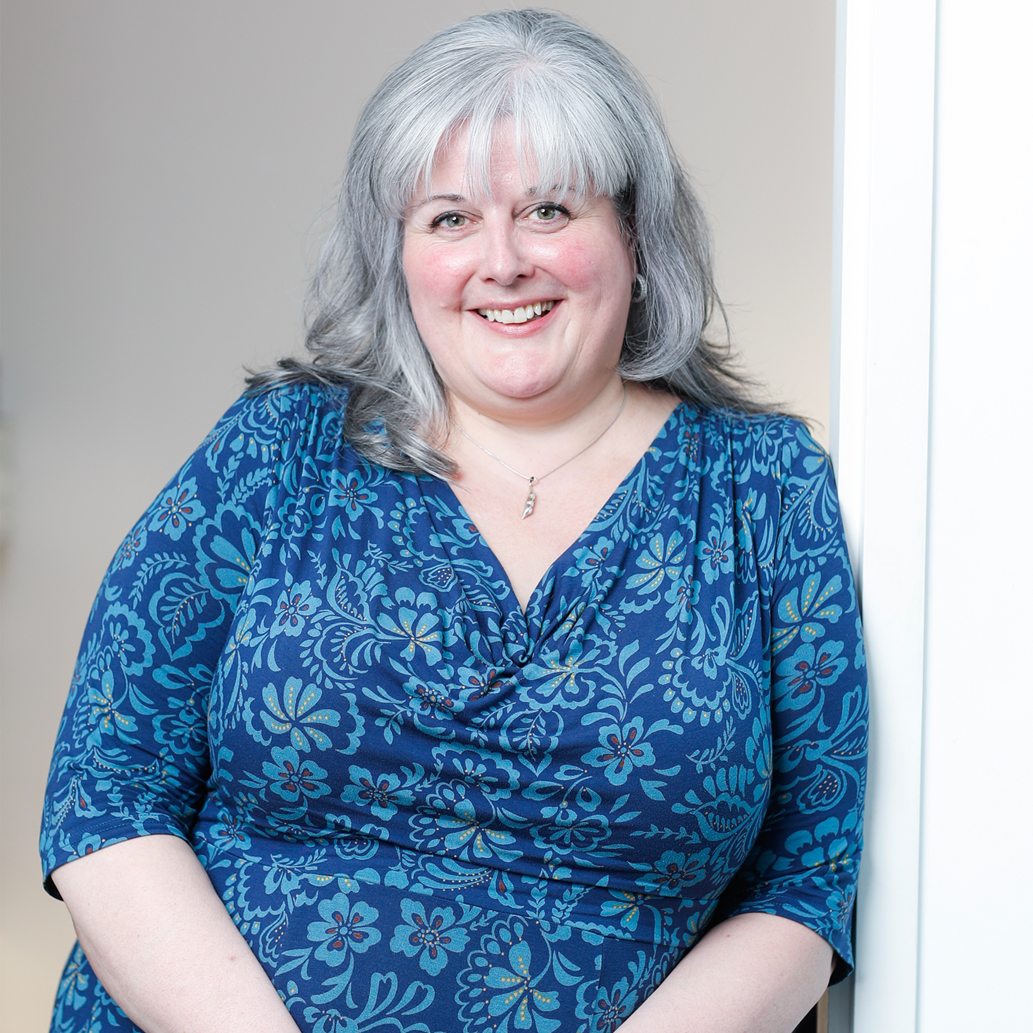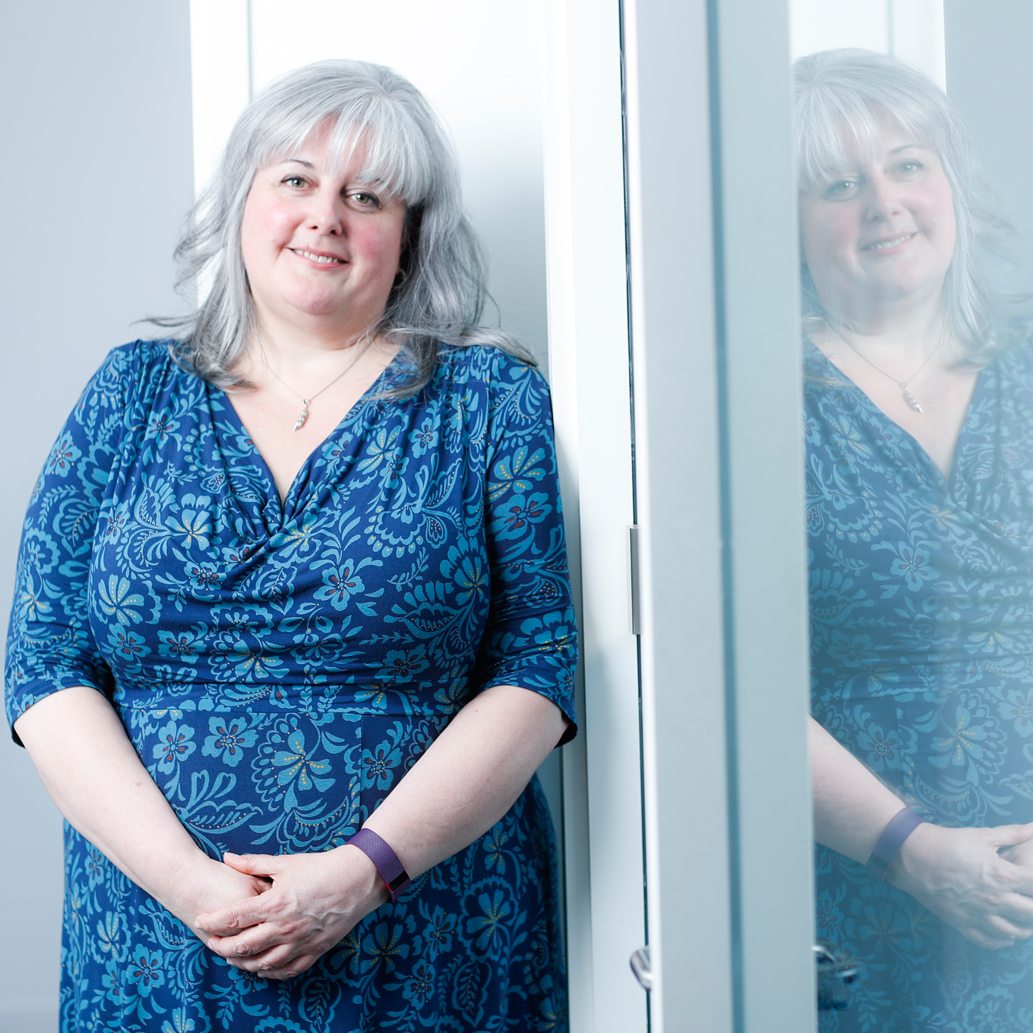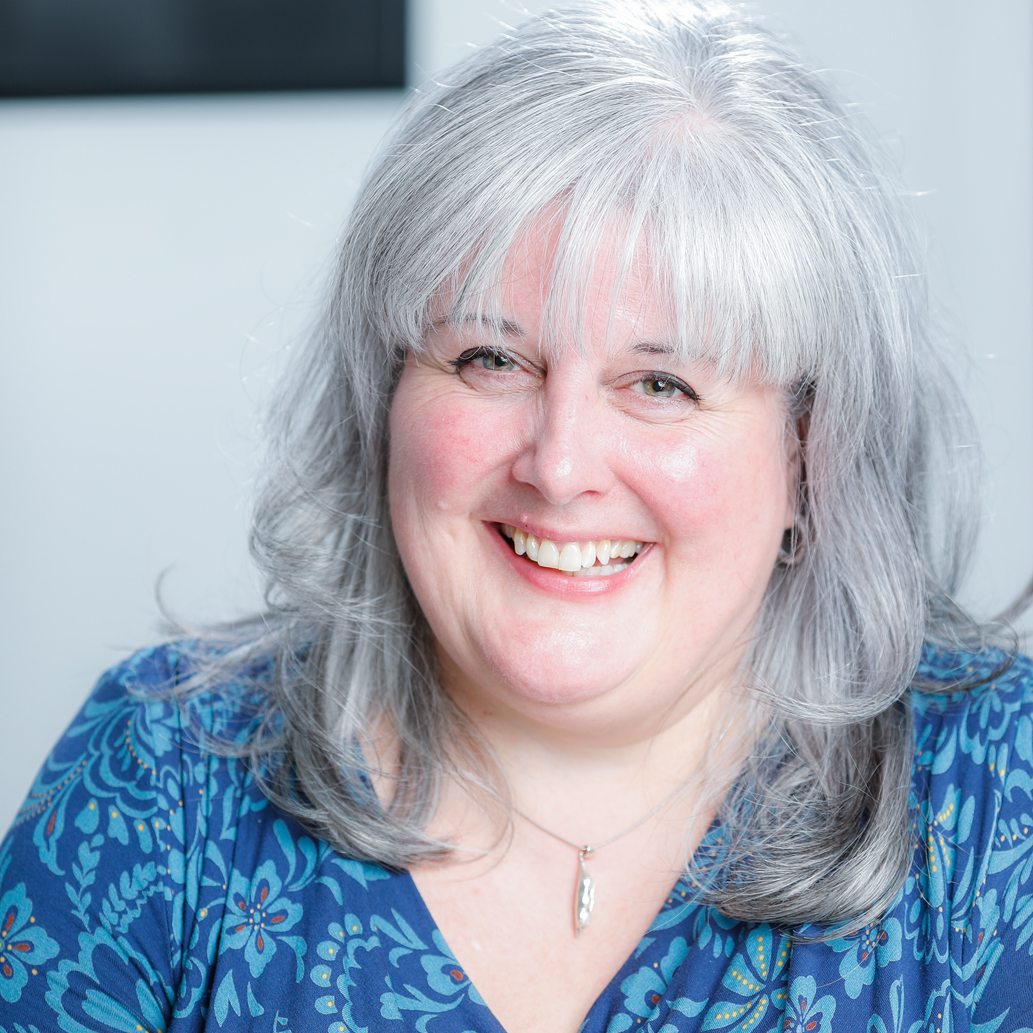Karen, tell us about your early life and why you decided on HR as a career. HR first took my interest while studying a module on it, whenI was studying for a degree in PublicAdministration at Manchester Metropolitan University.
It was my favourite module on the course, and I still use a lot of the theory and basic principles from the degree in my day-today work. The rest of the course was founded in general organisational development theory and was really fascinating. While on placement with the NHS during the course, I was offered a job there recruiting medical staff, which I thoroughly enjoyed. I loved the work I was doing, and it was then that I knew HR was the career path I wanted to take. Like so many other graduates, I applied for several schemes with corporates and, in hindsight, I’m so relieved that I didn’t land a blue-chip placement, as it wouldn’t have suited who I am one bit. Instead, my next role was in the education department of a county council, working on employee relationships with kitchen staff, cleaning staff and caretakers. It was highly unionised, and I learned a lot in a short time about people in the workplace. I worked for a range of organisations in HR-based roles over the next decade, including a Saudi hospital management company and at the Locum Group, recruiting social work and care staff.
My next role took me to Diabetes UK, a charity that had been a client of mine, whilst working at Locum, and where a part-time course I had studied at the Institute of Optimum Nutrition came in useful. Diabetes UK took a chance on me with an HR Generalist role, and colleague Andrea Barber was a fantastic mentor during my time there. It was a sophisticated organisation which was rapidly growing, and this enabled me to learn about lots of different aspects of HR, including a pay and benchmarking review. The organisation was transitioning from a large workforce of people, who all knew one another, to an even bigger and more complex place to work, and being a part of this culture change was hugely important for my HR learning. I learned the importance of having open dialogue with individuals about their issues, with honest but kind eyes, rather than resorting at the first instance to formal processes. That has since proven time and again, not just to be the most compassionate way to deal with performance management, but also the most effective. Charities have such a unique culture and atmosphere, which I adapted to quickly, and I felt like the sector was calling me.

Tell us about your next move.
After five years at Diabetes UK, I had gained a wealth of experience, and was ready to take on a new challenge. A job came up at Contact a Family, which was a similar size to Diabetes UK, but a very different organisation. For a start, it was a much older demographic of colleagues, working in local boroughs and without much structure or HR management. This excited me, as I felt that I would be able to bring my own learnings to the organisation to affect positive change. After meeting with all the managers there, I began with basic policies and procedures, and moved toward cultivating an environment for feedback and two-way conversation. This enabled a basic structure for standards, such as performance management. It was my then-boss, Cathryn Wright who, much later down the line, was working for Stonewall and informed me of a senior HR role that was being advertised there. So after the formal application process and successful interview, that’s where I moved, and here I am today!

What did Stonewall’s CEO, Ruth Hunt, say she was expecting from you as HR Director, in terms of impact on the organisation?
Stonewall was, and is, Britain’s leading charity for lesbian, gay, bi and trans equality, and it had devised a new vision of “acceptance without exception”, a world where everyone is free to be themselves. In order to achieve this, it was important to restructure the organisation, to ensure that individuals and teams were best placed to affect change in their specific roles. We didn’t want to rush the structural changes, which had previously been developed by an external consultant, so this gave us the perfect opportunity to take stock and develop an internal steering group. The team, our Staff Consultative Group, went on to help us develop the values that would truly belong to us and reflect what Stonewall now represented and was all about. One of the first objectives was to change the dress code, which was gendered, and amend this to be inclusive of non-binary and gender-nonconforming members of staff. Meanwhile, business planning became more collaborative, with other teams being able to feed in the initial stages of one another’s plans for the year ahead, and this helped to inform the way we introduced performance management, alongside knowledge sharing with the businesses we work with, and analysing their latest thinking. We also chose to separate anypay element from performance conversations, and aligned with the sector, so we now have one set bonus, which is the same for all staffmembers – if we make our targets for the year – which is fairer and respects the importance of all roles in the organisation, regardless of seniority. The restructured policies produced a cultural change within the organisation, and increased staff satisfaction across all areas of their working lives, whether that involved feeling proud to work for Stonewall or being valued by managers. It was really important for us to produce clear messaging and understanding around what the organisation represents, both for internal and external use. Importantly, we want all individuals, staff or otherwise, to think that this is an organisation for them. Despite being unable to compete with corporate salaries, it’s more than just the cause that helps keep staff here and happy.

Tell us more about Stonewall’s profile and role - and how it has changed.
Stonewall was founded in 1989 in response to a piece of legislation called Section 28, which prohibited the ‘promotion of homosexuality’ in schools. Lobbying for legal change remained a large part of the group’s work over the years, helping to introduce and repeal various laws, in order to protect the community. The organisation has expanded rapidly over the last few years, now operating across England, Scotland and Wales. While changing laws remains part of the work Stonewall still carries out, in particular around trans law reform, it has three other focuses; transforming institution, changing hearts and minds and empowering individuals. This is about ensuring that all LGBT people are able to be themselves, wherever they are, without experiencing discrimination, abuse or violence. We work towards this through partnership, be that with governing bodies, schools, faith leaders, and the 700+ businesses across the private, public and third sectors that we work with. Across sectors, from law firms, to banks, to health and social care providers, to local authorities, we work alongside them to ensure their workplaces are fully-inclusive of all LGBT staff and stakeholders, and many of these organisations also lend their own time, support and expertise to enable us to do various strands of our own work, to create positive change for lesbian, gay, bi and trans people everywhere.
Businesses taking such a vested interest in Stonewall and supporting what you do must be fantastic, and such a change from when the organisation was first founded.
We are certainly working with an increasing number of businesses, which has grown enormously over the last decade, which is fantastic. It’s been proven that people perform better when they can be themselves, and certainly in workplaces diverse teams produce better results and better represent the communities that they serve. So for us, while we do continue to talk to corporates about the moral case for inclusion, we know that they’re fully aware of the fact that it creates results. Jobseekers, contractors and customers too, whether LGBT or not, want to do business with organisations who support equality. We’re now at a stage where many graduates may not apply for a firm, if it isn’t part of our Diversity Champions programme. In some sectors, the buy-in can be tougher than others, and it can be a slower journey, but we meet people and organisations and work with them, rather than against them, to help affect positive change. Who’d have thought, when Stonewall first set up in 1989, that MI5 would go on to be named as our 2016 Top Employer in Britain? And it’s organisations like MI5, that go above and beyond to demonstrate their commitment to inclusion, that really are making waves for inclusion and equality. In front of a room full of business leaders at a Stonewall event last year, the Director General of MI5 said: “I believe the country is safer because of the work we do with Stonewall.” In terms of validation, that all the hard work is paying off and we’re on the right track, it doesn’t get better than that. Baker & McKenzie supported our launch of a report into LGBT asylum seekers, Lloyds Banking Group, our Top Employer for 2017, enable us to hold our Young Campaigners programme and Nottinghamshire Healthcare NHS Foundation Trust, using their own expertise in trans inclusion, go and support and develop other NHS trusts, so that their trans service users would have a better experience. This ‘above and beyond’ approach is what acceptance without exception is all about, it’s something that we simply can’t do without the support of partner organisations.
How do you see HR's role, moving forward?
HR must play a central role in diversity and inclusion and, as a sector, we do this quite well. When I talk to peers in HR, they all want to do the right thing; often they just require a little more knowledge, but even this is getting better within the field. The message is simple when it’s broken down, it’s just about giving people the tools to feel confident enough to spread that message and live the values within it. I would encourage HR professionals to ensure their organisations have the right guidance – becoming a Diversity Champion at Stonewall is a great start – as well as making sure that there is visible support throughout the organisation. Senior champions are vital, as they have gravitas around decision-making and influence, as well as allies within an organisation who aren’t LGBT, but champion equality and inclusion, as this is empowering for others who want to show support and aren’t sure how. Ensuring you have enough visible, diverse people supporting this actively will help start to create a culture change that encourages inclusion and celebrates difference. One thing we’ve learned is that you should never be complacent about your efforts and achievements. Implementing policies and creating a culture, where all employees feel able to bring their authentic selves to work is a good start, but the businesses who are truly going from strength-to-strength, are those that benchmark their efforts.
Stonewall’s Workplace Equality Index really seems to be gaining corporate kudos.
Indeed, this is a powerful tool that hundreds of businesses now use each year to assess their own efforts, and see how they are performing against a list of criteria in comparison to the previous year. We assess LGBT inclusion on criteria such as: Employee policy; training; the employee network group; all-staff engagement; career development, line managers, monitoring, procurement and community engagement, for example. Organisations can enter the Index free, and it also includes an optional staff feedback survey, that helps give a steer on which areas of inclusion at work need most work, and we received over 90,000 responses in 2017. This makes it one of the most robust pieces of research of its kind, dealing with topics such as; senior leadership and role models. It really helps businesses to continue reassessing their success, and taking part in the Index has an external pay off for the top scoring 100 companies that take part, because we use the WEI to form our annual Stonewall Top 100 Employers list. We only publish the Top 100, although we received over 500 submissions for 2017.
Other HR practitioners who I’ve met and spoken to have been extremely impressed with the framework, which has been developed over time internally by the team who work with these businesses. In fact, some of them have tried to adapt it for use with other diversity strands, as the areas of assessment are applicable all around. Another means for HR professionals supporting this work is by making your recruitment as open and appealing as possible to graduate and school-leaving lesbian, gay, bi and trans jobseekers, who want to work somewhere that values them for who they are. In addition to the Workplace Equality Index, we produce a Starting Out guide each year, which includes case studies from the businesses we work with across a range of sectors. This details their employers’ inclusive cultures, sheds a little more light on what the job roles entail and what the businesses stand for, and information on the sorts of skills and interests that you might need to work in the field. It’s an extremely successful tool, and leads to talented and diverse young people finding careers with a range of businesses, be it; health and social care providers, banks, universities, the armed forces or retail businesses. Aside from this, I would just encourage any HR practitioner to keep an open dialogue with the group of people they’re representing. This mirrors our ongoing work with various strands of the lesbian, gay, bi and trans community. It’s about encouraging feedback, exchange and guidance, and it’s such a small and simple thing, but it’s really vital. How can you successfully implement a structure to support LGBT people if no LGBT person has provided feedback on your ideas or plans?
How does this work impact organisations and individuals outside of Britain, in particular in parts of the world where same-sex activities are illegal?
It is an incredible challenge, but it’s one that Stonewall tackles by the side of activists on the ground in specific countries. They advise us on if we can help and how. Learning exchange visits often prove as beneficial for us as human rights defenders from other parts of the world, as there is always so much to learn. We also have a Global Diversity Champions programme, where we work alongside multi-nationals and advise how they can best support LGBT staff in other countries. This of course differs for various parts of the world and we have produced global briefings that advise on doing just that, which we produced alongside businesses who work in those specific countries and activist groups based within them. It’s important that people are informed, so that they are safe.
How do politics, particularly those whose views oppose the work you do at Stonewall, affect how the charity runs?
We are non-political and we want to work with whomever is in power, but there is a real watch on any possible backslides for LGBT people. We are at our most effective when we understand other people’s perspectives and views, to understand why there is prejudice, and its important for us to try and ‘call in’ people in those communities rather than call them out. That is the only way we will be able to change hearts and minds. There can be opposition from our own community too. For example, we are often accused of being too London-centric, and so we’re actively changing this, so that we are more widely operational and representative. Examples of this include extending programmes and conferences to cities across Britain, or working with community groups based in other regions to establish the specific and different needs one person might have, if they were based in South East London, compared to say, the Isle of Wight. Being able to understand and positively impact the unique, lived experiences of all LGBT people, which can be impacted by region, economic background, race, age or many other factors, is what this is all about.
One area that must face more problems than others, in terms of inclusion, is sport - we are still yet to see a Premier League player come out?
For us, it’s not just about footballers at this level ‘coming out’, but feeling comfortable enough to do so if they chose to. The actual act of coming out is deeply personal and an individual choice – no one should feel pressured to do so, or feel as though they owe it to anyone. However, we know that visible role models affect change, and the act of a Premier League player coming out would no doubt be hugely influential. That said, we still aren’t in an environment where I think a top-level player would feel comfortable coming out, and our recent research into sports fans’ attitudes toward LGBT people proved that. We are making progress though, and that is in part thanks to some of the teams and global companies who are working with us and calling on their fans and customers to support equality within sport. Stonewall recently founded Team Pride, whose members include; Manchester United, Aviva, Aon and Adidas. During November, we also saw many teams lace up with rainbow laces during fixtures, and captains wearing rainbow armbands. Once again, this demonstrates the power of corporate buy in, and how the support of businesses can really make a difference in the world. Also, key to this is education and building a culture of acceptance and respect from school, the grassroots. My nephew wears rainbow laces in school and encourages his classmates to do the same. In fact, one of his teachers recently spoke at our Education Conference about the LGBT group set up there, that welcomed all pupils. To hear this, about the school that I used to attend, long before Stonewall was founded, was a real moment for me. The journey that it has been on is incredible, and to be a part of an organisation that works with so many individuals and groups, to help support this, makes every day working here such a thrilling and rewarding role to have.












